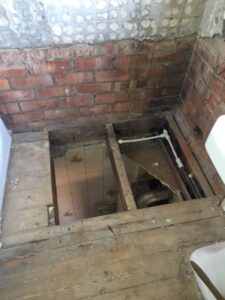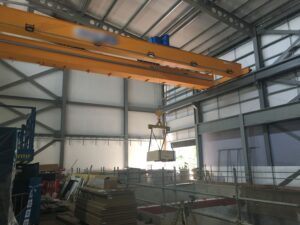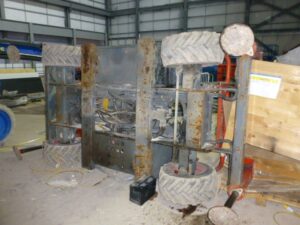Company fined after ‘loving’ grandad dies from fall
A grandfather died after falling through a hole in his own bathroom that had been left by workers.
Kenneth Armitage landed on the kitchen floor below, in an incident his daughter Suzy said “should never have happened.”
The bathroom in Mr Armitage’s house on Whitestone Drive in Huntington, York had been getting converted into a wet room by the construction company Cooper and Westgate.
The company had removed the room’s floorboards as it accessed pipework, but left an unguarded hole in the floor on 8 February 2019.

The 81-year-old later fell through the hole and was found dead by his son-in-law the following evening on 9 February.
A Health and Safety Executive (HSE) investigation found Cooper and Westgate failed to adequately secure the hole as its employees were not properly trained. The company had also failed to undertake a suitable and sufficient risk assessment, nor a method statement for the work involved.

HSE guidance can be found at: Working at height: A brief guide (hse.gov.uk)
Kenneth’s daughter, Suzy, said: “Our dad, who was sadly taken away from us, was everything to us. He was the kindest person you could ever meet.
“He was a fantastic dad to me, my brother and a loving grandad to all our children.
“I can’t believe he has gone, I keep thinking it’s a horrible nightmare and I will wake up and he’ll be there. Our hearts were broken that day and may never heal. It should have never happened.
“We are all still struggling to come to terms with losing him.”
Cooper and Westgate Co. Ltd, of Navigation Court, Calder Park, Wakefield, West Yorkshire was found guilty of breaching Section 2(1) and Section 3(1) of the Health and Safety at Work etc. Act 1974. The company was fined £150,000 and ordered to pay £50,000 in costs at Leeds Magistrates’ Court on 17 September 2024.
HM inspector of health and safety Yolande Burns-Sleightholme, of HSE, said: “Employers need to fully assess and control the risks from work at height, caused by creating holes in domestic properties and recognise the importance of securing them effectively. They should then pass this knowledge on to their employees through suitable training and guidance.
“This incident could so easily have been avoided had Cooper & Westgate properly assessed the risks, put in place safe working practices and provided the correct training to its employees.”
Notes to editors:
- The Health and Safety Executive (HSE) is Britain’s national regulator for workplace health and safety. We are dedicated to protecting people and places, and helping everyone lead safer and healthier lives.
- More information about the legislation referred to in this case is available.
- Further details on the latest HSE news releases is available.
- HSE does not pass sentences, set guidelines or collect any fines imposed. Relevant sentencing guidelines must be followed unless the court is satisfied that it would be contrary


